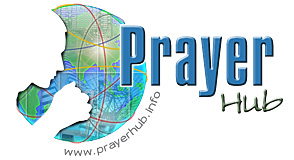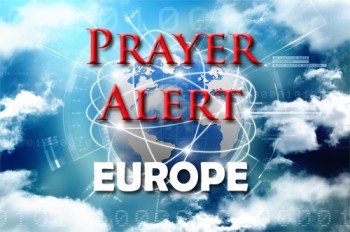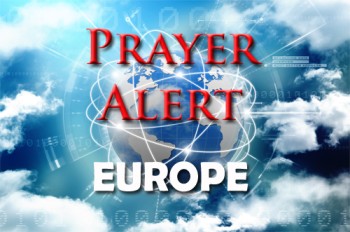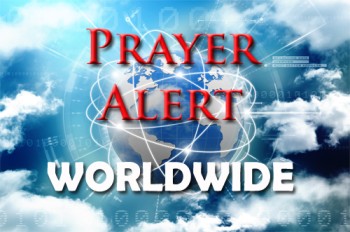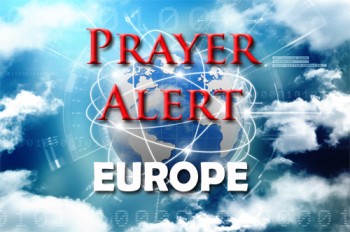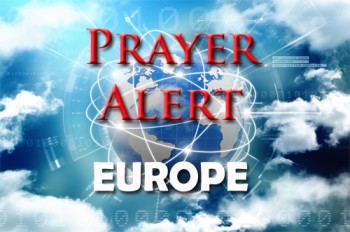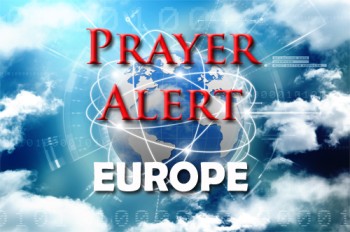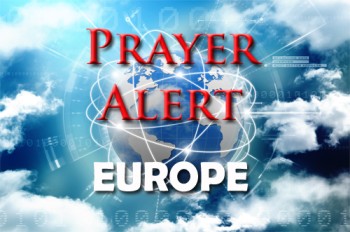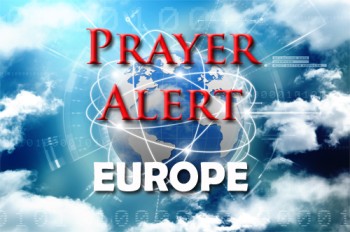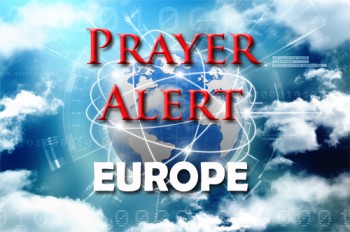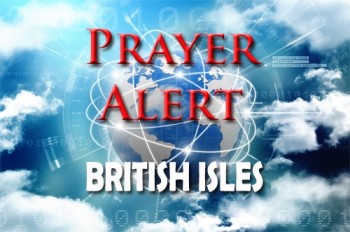Worldwide
Displaying items by tag: Russia
Ukraine: ceasefire negotiations make no substantial progress
After two days, negotiations between Russia, Ukraine and the USA ended without a ceasefire agreement, highlighting how far apart both sides remain. Discussions addressed military monitoring and possible prisoner exchanges, yet the central dispute over territory continues unresolved. Russia insists on control of the eastern Donbas region, while Ukraine rejects surrendering sovereign land and seeks security guarantees against future invasion. The status of the Zaporizhzhia nuclear power plant also remains contested. After years of war, millions remain displaced and daily attacks continue to endanger civilians. Diplomats describe the talks as substantive but difficult, with further meetings expected. European representatives have struggled to be included in the negotiations, and Zelensky said European participation was ‘indispensible’ for any final agreement. 24 February will be the fourth anniversary of the Russian invasion of Ukraine.
EU leaders face difficult decision on Russian steel
Across Europe, leaders face a difficult decision over Russian steel imports. Although finished steel was banned after the invasion of Ukraine, semi-finished steel continues to enter the EU because several countries rely on it for infrastructure projects. Nearly three million tonnes arrive each year, worth billions of euros. Some lawmakers argue these purchases indirectly strengthen Russia’s war capacity, while others warn that a sudden ban would harm industries and delay construction. Negotiations are now under way to decide whether imports should end immediately or continue until 2028 as previously planned. The debate reveals a deeper struggle: balancing economic stability with moral responsibility during wartime. The outcome could shape Europe’s unity, economic resilience, and witness to justice, reminding believers that political decisions carry spiritual weight.
Italy: sabotage attempts during Winter Olympics
Suspected sabotage on northern Italy’s railway network caused major disruption as crowds gathered for the opening of the Winter Olympic Games. Authorities reported several coordinated incidents, including fires on rail infrastructure, severed electrical cables and a rudimentary explosive device near Bologna, a key national transport hub. Delays stretched for hours across routes linking major cities such as Venice and the Adriatic coast. Officials described the attacks as serious and possibly intended to coincide with the international event, drawing comparisons with similar disruption during the Paris Olympics in 2024. No group has claimed responsibility, and investigations continue while services return to normal. Despite the tension, ceremonies proceeded across multiple venues in Milan and the mountain regions. Italy had earlier foiled cyber-attacks, claimed to be of Russian origin: see
Ukraine: thousands without electricity as peace talks continue
Renewed Russian attacks on Ukraine’s energy infrastructure have left millions without power during freezing winter conditions. Volodymyr Zelensky said more than two hundred repair crews are working around the clock in Kyiv, where over 1,100 apartment buildings remain without electricity. Elsewhere, cluster munition strikes in eastern towns such as Druzhkivka killed civilians and injured many more. The attacks, whose effect was exacerbated by temperatures as low as -20C, followed a week’s pause requested by Donald Trump. Families have sheltered in metro stations, warming centres and makeshift tents as generators are brought in. Energy officials warn repairs will take time, with some key facilities severely damaged. The governor of a Russian town near the border said work was continuing to restore power and water services following a Ukrainian missile strike there earlier in the week. While US, Ukrainian and Russian representatives meet again in Abu Dhabi to discuss a peace plan, there are few signs of progress. As winter deepens, ordinary Ukrainians face exhaustion, grief, and uncertainty alongside continuing violence.
Russia: new report estimates over one million casualties in Ukraine war
A new report from the Centre for Strategic and International Studies estimates that around 1.2 million Russian troops have been killed, wounded or gone missing since the invasion of Ukraine nearly four years ago. Despite this enormous human cost, Russia has expanded its control of Ukrainian territory by only about 12%: in the past two years, only by 1.5%. The statistics challenge assertions that a Russian victory is inevitable, noting that Ukraine’s defensive strategy of trenches, mines, obstacles, drones and artillery has limited Russian advances to minimal gains. Mark Rutte has said that in December alone Russia lost 30,000 soldiers (in Afghanistan, they lost 20,000 in ten years). The toll far exceeds Russia’s losses in all its post–World War II conflicts combined. Economically, the war has weakened Russia’s long-term prospects, slowing growth, deepening labour shortages. The war is burdening the not only the current Russian economy but its future prospects, the report says: the country ‘is becoming a second- or third-rate economic power’. Yet Putin is unlikely to settle for a peace deal without further Western pressure on his regime.
Russia: the Arctic is both opportunity and threat for Putin
The Arctic occupies a central place in Vladimir Putin’s strategic thinking, combining vast natural resources with critical military importance. Russia controls more than half of the Arctic coastline and sees the Northern Sea route as a future rival to the Suez Canal, especially as melting ice opens new shipping lanes. Western sanctions since the invasion of Ukraine have increased Moscow’s reliance on Arctic energy exports and on China as an investor and customer. At the same time, climate change threatens Arctic infrastructure built on thawing permafrost, raising risks of environmental disasters and disease. Militarily, the region underpins Russia’s nuclear deterrent, with key submarine bases on the Kola Peninsula protected by layered defences. Yet NATO’s growing presence and China’s expanding role complicate Putin’s ambitions. The Arctic promises power and prestige, but it is also increasingly unstable and contested.
Ukraine: Russian air strikes cause widespread energy loss
As Ukraine is enduring one of the harshest winters of the war, Russian strikes continue to target the country’s energy infrastructure. In Kyiv alone, around four thousand buildings remain without heating and nearly 60% of the city has lost electricity following recent attacks. Across the country, communities face similar disruptions amid freezing temperatures. Volodymyr Zelensky has declared a state of emergency in the energy sector, with schools closed, public lighting reduced, and hundreds of thousands leaving the capital. He has also criticised the mayor of Kyiv, former boxer Vitali Klitschko, for not doing enough to restore power quickly. Hospitals have reported more than a thousand cases of frostbite and hypothermia in recent weeks. Emergency warming tents now dot the city, offering shelter and food. Germany has described Russian winter attacks on energy as war crimes, and the International Criminal Court has issued arrest warrants for two top military officials said to be responsible for them.
Poland: ‘only Trump can restrain Russia’
On a visit to the UK, Karol Nawrocki, Poland’s president, has warned that Europe faces an increasingly dangerous security environment and believes only Donald Trump can restrain Russia’s ambitions. He said that Russia could not be trusted and was actively testing both Poland’s defences and Europe’s unity. He pointed to large-scale drone incursions from Belarus and Ukraine as evidence of a sustained hybrid conflict, involving military pressure and disinformation. While expressing concern about tensions within the Western alliance, he argued that Donald Trump remained Europe’s essential security guarantor and deserved support for efforts to end the war in Ukraine. Nawrocki praised Britain’s military assistance and criticised European leaders for neglecting defence readiness. With Poland investing heavily in security, he urged greater focus on resilience, cooperation and unity in what he described as dangerous and uncertain times.
Ukraine: UK and France agree to send troops if a peace deal is reached
The United Kingdom and France have agreed in principle to deploy troops in Ukraine if a peace deal with Russia is reached, marking a significant step in European security planning. Keir Starmer said the declaration of intent would allow British, French and partner forces to operate across Ukraine to deter future aggression, while Emmanuel Macron suggested thousands of troops could be involved. Allies meeting in Paris broadly agreed on the need for robust security guarantees, with the USA expected to lead monitoring of any ceasefire. However, major questions remain unresolved, particularly over territory occupied by Russia and the precise terms of enforcement. Moscow has warned foreign troops would be legitimate targets and has so far remained silent on the proposals. Volodymyr Zelensky, who said on 1 January that a peace deal was ‘90% ready’, welcomed the talks as progress but stressed that guarantees would only matter if they truly ended the war, as pressure grows on all sides to compromise.
We need more people ready to fight, military chief says
Chief of the Defence Staff, Air Chief Marshal Sir Richard Knighton, has warned that the nation needs more people prepared to defend the country amid growing global instability and rising threats from Russia. He called for a 'whole-of-society response' to deter conflict, stressing the importance of strengthening regular forces, reserves, cadets, and the defence workforce. While he said the likelihood of a direct Russian attack on the UK remains remote, he highlighted intensifying hybrid threats, including cyber-attacks, suspected sabotage, and hostile surveillance near UK waters. He described Russia’s military as increasingly sophisticated, combat-experienced, and expanding in hard power, despite setbacks in Ukraine. The UK, he said, must become a 'harder target' to avoid war rather than provoke it. Building national resilience, he argued, goes beyond military strength and includes universities, industry, energy, healthcare, and manufacturing. With defence spending set to rise sharply, he emphasised the need to inspire young people to pursue careers supporting national security. Recent investments include £50 million for new defence technical colleges to address critical skills gaps.

